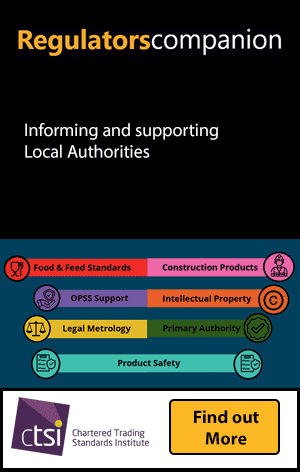Think Tanks
|
|
|
Scotland’s Currency Options
Debt burden is central to Scotland’s currency choices, according to new research.
How much of the existing UK public debt an independent Scotland would inherit, and how it manages its debt are central to understanding its currency choices, according to new research from the National Institute of Economic and Social Research (NIESR).
Dr. Angus Armstrong, Director of Macroeconomic Research at the NIESR, and colleague Dr. Monique Ebell, NIESR Research Fellow are being funded by the Economic and Social Research Council (ESRC) to look at the currency and fiscal options for Scotland as part of the ESRC’s Future of the UK and Scotland initiative to inform the referendum debate.
The executive summary of their report Scotland’s Currency Options is released today (Tuesday, 17 September) along with an animation describing currency choices, ahead of the presentation of the full paper at the International Conference of the Economics of Constitutional Change in Edinburgh this (Thursday, 19 September).
The researchers looked at the three currency options for any independent Scotland: being part of a sterling currency union, adopting the euro, or having an independent currency. No currency option is the best when considered against all criteria, they find. Therefore, making the decision requires deciding which criteria are most important. The NIESR researchers puts their emphasis on fiscal solvency; whether a country can honour its debt obligations.
ESRC Fellow Dr Armstrong explained:
“Recent events around the world, particularly in Europe, have shown that fiscal sustainability and currency arrangements cannot be considered in isolation.
“We consider how the existing UK public debt would be divided, and the ability of an independent Scotland to pay its share. For an independent Scotland to prosper it requires a 'hard' currency; one in which investors are willing to hold long-dated Scottish government debt at a reasonable price. A necessary condition for a ‘hard’ currency is that government solvency must always be beyond doubt.”
The team addresses two key issues: how much higher would an independent Scotland’s borrowing costs be if it keeps using sterling and what sorts of fiscal policy would be consistent with debt stabilization. The researchers estimate that an independent Scotland would face additional interest rate costs of between 0.72% to 1.65% above the UK borrowing costs for 10 year debt (or technically a spread of 72 to 165 basis points over the average 10 year UK bond yield of 4.10% between 2000 and 2012).
They also estimated that Scotland would have to run a tight fiscal policy to achieve a sound debt level under those borrowing costs. Using the lower bound borrowing cost, Scotland would need to run primary or underlying surpluses (excluding interest payments) of 3.1% annually order to achieve a Maastricht-defined debt to GDP ratio of 60% after 10 years of independence. Given Scotland’s estimated average primary fiscal deficit of 2.3% (including taxes from oil and gas) over the period 2000-2012, running a surplus of 3.1% would represent a fiscal tightening of 5.4%.
These estimates assume that Scotland would receive a geographic share of hydrocarbon reserves, a per capita share of existing public sector debt (on a Maastricht basis) and real GDP would grow at 2% annually.
Such a fiscal tightening would leave an independent Scotland with very little room for fiscal manoeuvre in the case of a negative shock, such as a drop in the oil price or a recession. That makes it important to have other policies available, such as interest rate or exchange rate adjustment. Among the currency options open to an independent Scotland, having its own currency would give it flexibility to respond to shocks. While there are significant transitional challenges, over the medium and longer term this would be more consistent with independence.
The team propose a novel way of reducing the initial debt burden which would leave an independent Scotland looking more like the successful independent Scandinavian countries which also have their own currencies. An oil for debt swap – where the oil revenues would pass over to the UK in exchange for a large write down of the debt that Scotland would otherwise assume - would greatly reduce the economic risks of independence, although there may be significant political limitations to this possibility.
Dr Armstrong explains: “The greater the amount of public debt an independent Scotland assumes, the greater the importance of retaining some policy flexibility and the stronger the case for introducing a new Scottish currency.”
End
Notes to editors
1. A press conference on the findings in the executive summary will be held today (Tuesday 17 September) from 11am to 12.30pm at The Royal Society of Edinburgh, 22-26 George Street, Edinburgh, EH2 2PQ. To attend please contact Goran Stankov by email: g.stankov@niesr.ac.uk or phone: 020 7654 1905.
2. The full paper will be presented at the International Conference on the Economics of Constitutional Change being held in Edinburgh on 19 and 20 September. For details on accreditation please email or ring Paul O’Keeffe paul@bouldergroup.co.uk (m) 07740 818 240 The seminars are being held under Chatham House rules.
3. Briefing papers on some of the subjects under discussion at the conference are already available at: http://esrcscotecon.com/conferences/international-conference-on-economics-of-constitutional-change.
4. The Economic and Social Research Council (ESRC) is the UK's largest organisation for funding research on economic and social issues. It supports independent, high quality research which has an impact on business, the public sector and the third sector. More details about the ESRC’s Future of the UK and Scotland programme of activities are available at: www.esrc.ac.uk/scotland and www.futureukandscotland.ac.uk . Follow us: @UKScotland.
The animated video of Scotland’s Currency Choices can be found here: http://www.youtube.com/watch?v=mBC0mLFz91o&feature=youtu.be
Further details of NIESR’s activities can be seen on http://niesr.ac.uk/ or by contacting: enquiries@niesr.ac.uk
Follow us: @NIESRorg
National Institute of Economic and Social Research
2 Dean Trench Street
Smith Square
London, SW1P 3HE
United Kingdom
Switchboard Telephone Number: +44 (0) 207 222 7665
Switchboard Fax: +44 (0) 207 654 1900
Contact:
Angus Armstrong (a.armstrong@niesr.ac.uk) on +44 (0)20 7654 1925


